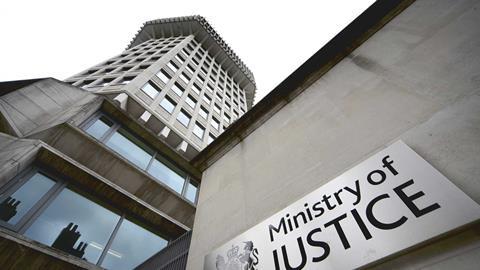The Ministry of Justice is actively ‘considering options’ for a broader response to the Supreme Court’s ruling in R (on the application of PACCAR Inc and others) v Competition Appeal Tribunal and others, it confirmed in a parliamentary written answer yesterday [13 December].
In PACCAR, the Supreme Court ruled last July that a litigation funding agreement amounted to a damages-based agreement (DBA), contrary to what had been widely understood to be the position. This has called into question the enforceabilty of many litigation funding agreements (LFAs).
Responding to a question from Conservative peer and former litigator Lord Gold asking what assessment the government has made of the impact of PACCAR on access to litigation funding, justice minister Lord Bellamy said that the government’s clause 126 amendment to the Digital Markets, Competition and Consumer (DMCC) bill going through parliament seeks to mitigate the judgment’s impact on LFAs for opt-out collective proceedings in the Competition Appeals Tribunal (CAT). He added: ‘The government is assessing the impact of the judgment and considering options for non-CAT proceedings.’
Meanwhile in closing the second reading of the bill in the House of Lords last week, Viscount Camrose, minister for artificial intelligence and intellectual property, noted that some peers had called for the government’s amendment to be extended ‘to all parts of the civil legal system’. He said: ‘While I am advised that this bill is not the appropriate vehicle to deliver this aim, I can assure noble lords that the Ministry of Justice is actively considering options for a wider response.’
During debate, Lord Sandhurst (Guy Mansfield KC) argued that a broader amendment was needed. He said: ‘The key issue is that the Supreme Court’s PACCAR ruling affects LFAs in all courts, not just in the CAT, and not just, as this clause 126 is designed to address, in so-called opt-out cases. You need it for opt-in cases as well.
‘In fact, such funded cases throughout the court system, particularly in the High Court, make up the majority of cases that litigation funding supports. I am told that CAT cases are just the tip of the iceberg.
‘While the current Clause 126 goes a little way, it will put matters right for so-called opt-out cases, but will not help in opt-in cases, nor in conventional bi-party litigation - one large against one small. The small company fighting Apple will, effectively, not be able to go to a funder.
‘Worse still, in the High Court - outside the CAT - in, for example, drug damages litigation, or the diesel exhaust emissions litigation to which I referred, the current Clause 126 will achieve nothing. Claimants will have no effective access to litigation funding agreements and many cases already in the pipeline face considerable problems.’
He added: ‘It is necessary, therefore, to restore what I would say was the government’s original 2013-14 intention, which was for litigation funding agreements not to be subject to the damages-based agreement regulations.
‘Clause 126 needs to be redrafted and expanded or it will not meet these important issues. This is critical to provide certainty and effective access to justice, and to protect and expand consumer rights: the Bill’s stated aim.’
The peer added that he had provided a draft amendment to the minister.
































No comments yet